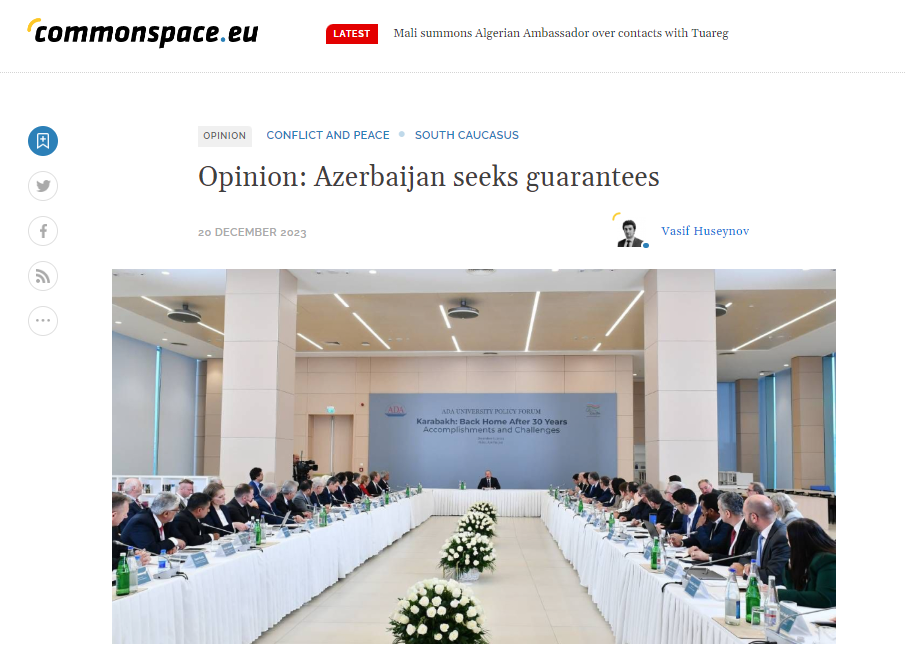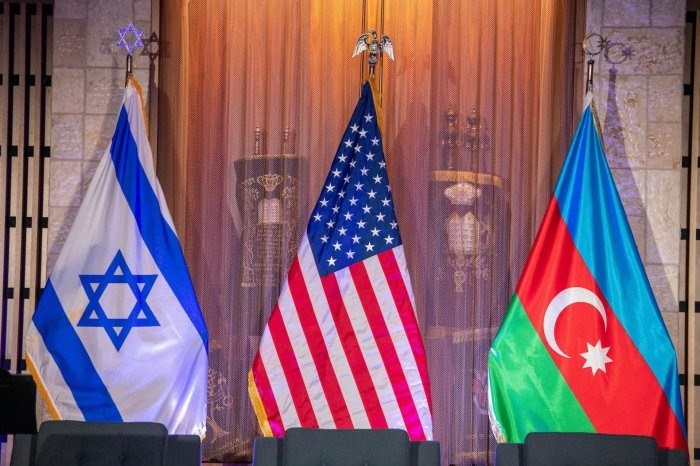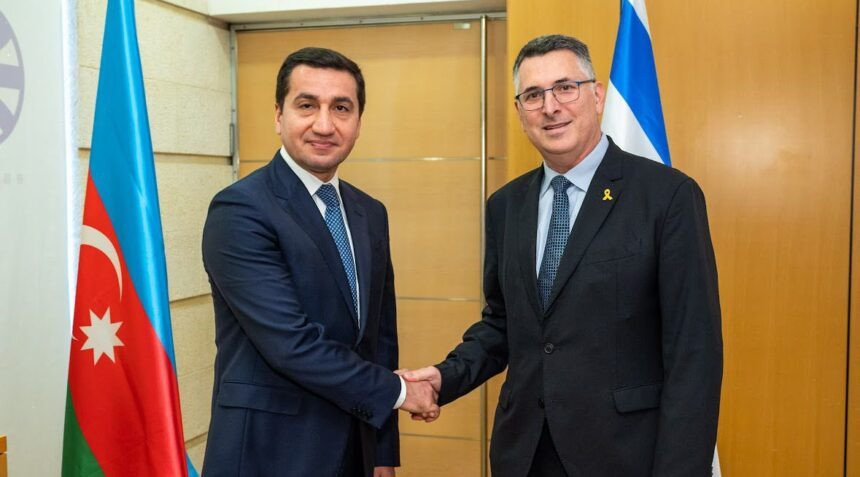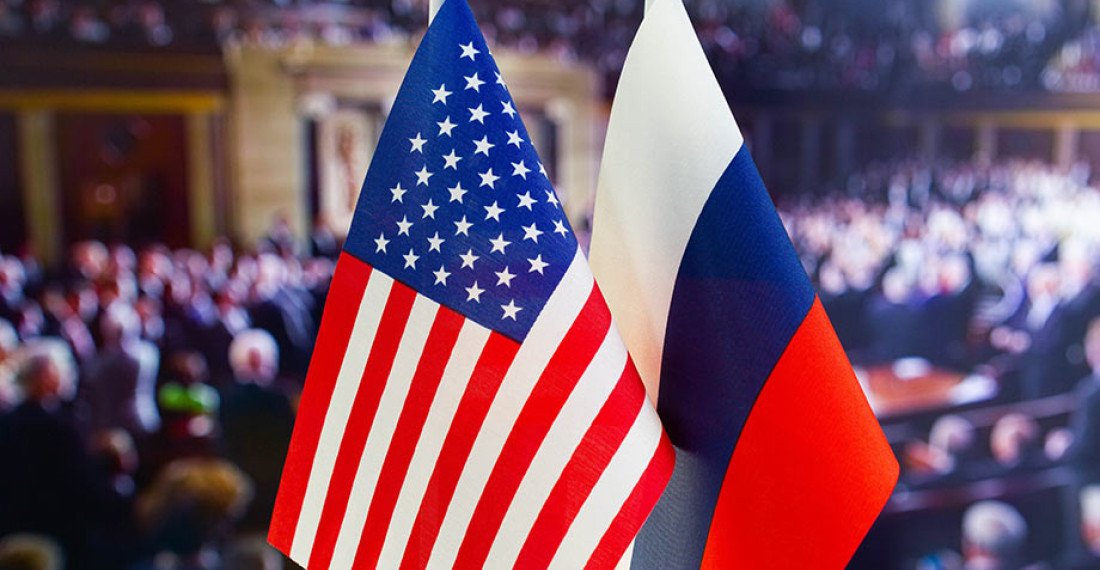"While optimism surrounds the impending peace agreement, the cautionary inclusion of guarantees becomes crucial to forestall resurgent territorial claims", writes Vasif Huseynov in this op-ed for commonspace.eu citing a comment by president Aliyev on 6 December. "As the region braces for a historic peace agreement, the challenge lies in designing a comprehensive treaty that not only concludes hostilities but fosters enduring reconciliation between Azerbaijan and Armenia."
On December 6, speaking at an international forum in Baku, President Ilham Aliyev of Azerbaijan, answering a question about the ongoing Armenia-Azerbaijan peace treaty negotiations, said his government expects assurances against revanchist comeback from the Armenian side. “We need firm, verified guarantees that there will be no attempt at revanchism in Armenia. Why we need it, because we know what’s happening in Armenia, and also we know that Armenia has very bad advisers in some European capitals,” he said.
The Armenia-Azerbaijan conflict following the collapse of the Soviet Union, marked by violent ethnic cleansing of Azerbaijanis from the occupied territories, the destruction of dozens of towns and villages have left deep scars and a traumatized experience in Azerbaijani society. It was only the territories of Azerbaijan that were subject to destruction and occupation. Such a history of the conflict, the persistent territorial claims by various socio-political circles in Armenia against Azerbaijan throughout the 20th century, and the use of force at every opportune moment to realize these claims leave no alternative but to seek credible guarantees enshrined in the peace treaty Therefore, Azerbaijan anticipates that the peace treaty will explicitly stipulate Armenia’s commitment to adhere to its terms and refrain from initiating military attacks or provocations against Azerbaijan.
It is laudable that, in response to calls from the Azerbaijani side to include guarantees in a peace treaty, Gevorg Papoyan, a parliamentary representative of the ruling party, categorically rejected any intention by the Armenian government to reclaim Azerbaijani territories. He went as far as to describe the possibility of retaliation by Armenia as suicidal for the country. Papoyan said, “If we have decided to eliminate Armenia, there will be no Republic of Armenia; let's talk about a rematch,” further emphasizing that “the peace agreement is about the absence of revenge. If revenge is contemplated, then what purpose does a peace agreement serve?”
However, regrettably, the historical experiences and the erosion of trust between the two nations make it challenging to rely solely on verbal assurances. The statements by some prominent Armenian experts and opposition figures demonstrate that still a certain segment of the society refuses to reconcile with the loss of the Garabagh region and other occupied territories. They do not shy away from discussing strategies to retake these territories through military operations.
For example, many Azerbaijani political experts and peace activists, who frequently met through international events with their Armenian counterparts advocating for peace and reconciliation between the two nations, would not have expected to see some of them contemplating publicly about strategies to “regain” Garabagh. It is noteworthy to cite the following statements from Benjamin Pogosyan and Richard Grigosyan, as they provide a clear insight into the extent to which these revanchist ideas permeate their thinking.
Pogosyan, in an article published on October 22, argued that “The first thing that should be done, and it should be done immediately, at least until the end of 2023, is to cancel the decree of the President of the Nagorno Karabakh Republic on the dissolution of the republic” and “Armenians must be ready to restore it if the necessary conditions are created in the face of global and regional upheavals”. In a similar way, Richard Grigosyan, in an interview with the Armenian media on December 3, asserted that the outlook for instability in Azerbaijan caused by implosion of the country is the only positive scenario in regaining of Garabagh. Such sentiments are frequently echoed by members of the political opposition in Armenia, who accuse the current government of state treason for what they perceive as “ceding Garabagh to Azerbaijan.” In parallel, they disseminate rumors about the alleged plans of the Azerbaijani government to invade Armenia, which is more of an attempt to cover up the past aggression and occupation by Armenia against its neighbor.
Hence, it is not coincidental that Azerbaijan expresses concerns at the highest levels regarding revanchist plans on the Armenian side. Indeed, the peace agreement, that is anticipated to be signed soon, should be developed in a way that the two countries can close their conflict chapter and step on the path of normalization of their relations.
The modus operandi and mechanism of such guarantees should be subject to discussions at different levels, including experts and policymakers. One such meeting between the experts from Armenia and Azerbaijan recently which was attended also by the author of this article concluded that the sides cannot rely on the institute of guarantors where great powers play the guarantor role. As the experience of Budapest memorandum (1994) on Ukraine demonstrated, the great powers often sacrifice the interests and security of smaller powers for their own interests even when it is at odds with their commitments under international agreements. An alternative approach could involve the establishment of an international mission, composed of representatives from neutral countries or international organizations with a proven track record in conflict resolution. The modus operandi and mechanism of this entity would be designed to prioritize implementation of the peace treaty, adherence to international law, and the protection of the interests and security of both parties involved.
That said, the recent breakthrough in Azerbaijani-Armenian relations (i.e. the exchange of prisoners and Armenia’s support to Azerbaijan’s bid to host COP29) marks a momentous move towards peace in the South Caucasus. The reciprocal gestures of releasing military personnel and diplomatic concessions signal a commitment to peace. While optimism surrounds the impending peace agreement, the cautionary inclusion of guarantees becomes crucial to forestall resurgent territorial claims. As the region braces for a historic peace agreement, the challenge lies in designing a comprehensive treaty that not only concludes hostilities but fosters enduring reconciliation between Azerbaijan and Armenia.
https://www.commonspace.eu/opinion/opinion-azerbaijan-seeks-guarantees








